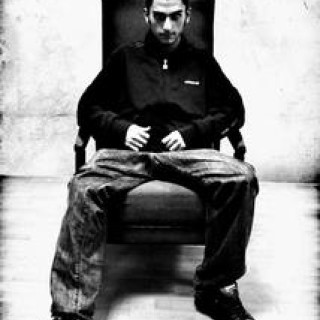
173
Gothic
Tekst piosenki
Catherine's disposition was not naturally sedentary, nor had her habits been ever very industrious; but whatever might hitherto have been her defects of that sort, her mother could not but perceive them now to be greatly increased. She could neither sit still nor employ herself for ten minutes together, walking round the garden and orchard again and again, as if nothing but motion was voluntary; and it seemed as if she could even walk about the house rather than remain fixed for any time in the parlour. Her loss of spirits was a yet greater alteration. In her rambling and her idleness she might only be a caricature of herself; but in her silence and sadness she was the very reverse of all that she had been before.
For two days Mrs. Morland allowed it to pass even without a hint; but when a third night's rest had neither restored her cheerfulness, improved her in useful activity, nor given her a greater inclination for needlework, she could no longer refrain from the gentle reproof of, "My dear Catherine, I am afraid you are growing quite a fine lady. I do not know when poor Richard's cravats would be done, if he had no friend but you. Your head runs too much upon Bath; but there is a time for everything—a time for balls and plays, and a time for work. You have had a long run of amusement, and now you must try to be useful."
Catherine took up her work directly, saying, in a dejected voice, that "her head did not run upon Bath—much."
"Then you are fretting about General Tilney, and that is very simple of you; for ten to one whether you ever see him again. You should never fret about trifles." After a short silence—"I hope, my Catherine, you are not getting out of humour with home because it is not so grand as Northanger. That would be turning your visit into an evil indeed. Wherever you are you should always be contented, but especially at home, because there you must spend the most of your time. I did not quite like, at breakfast, to hear you talk so much about the French bread at Northanger."
"I am sure I do not care about the bread. It is all the same to me what I eat."
"There is a very clever essay in one of the books upstairs upon much such a subject, about young girls that have been spoilt for home by great acquaintance—The Mirror, I think. I will look it out for you some day or other, because I am sure it will do you good."
Catherine said no more, and, with an endeavour to do right, applied to her work; but, after a few minutes, sunk again, without knowing it herself, into languor and listlessness, moving herself in her chair, from the irritation of weariness, much oftener than she moved her needle. Mrs. Morland watched the progress of this relapse; and seeing, in her daughter's absent and dissatisfied look, the full proof of that repining spirit to which she had now begun to attribute her want of cheerfulness, hastily left the room to fetch the book in question, anxious to lose no time in attacking so dreadful a malady. It was some time before she could find what she looked for; and other family matters occurring to detain her, a quarter of an hour had elapsed ere she returned downstairs with the volume from which so much was hoped. Her avocations above having shut out all noise but what she created herself, she knew not that a visitor had arrived within the last few minutes, till, on entering the room, the first object she beheld was a young man whom she had never seen before. With a look of much respect, he immediately rose, and being introduced to her by her conscious daughter as "Mr. Henry Tilney," with the embarrassment of real sensibility began to apologize for his appearance there, acknowledging that after what had passed he had little right to expect a welcome at Fullerton, and stating his impatience to be assured of Miss Morland's having reached her home in safety, as the cause of his intrusion. He did not address himself to an uncandid judge or a resentful heart. Far from comprehending him or his sister in their father's misconduct, Mrs. Morland had been always kindly disposed towards each, and instantly, pleased by his appearance, received him with the simple professions of unaffected benevolence; thanking him for such an attention to her daughter, assuring him that the friends of her children were always welcome there, and entreating him to say not another word of the past.
He was not ill-inclined to obey this request, for, though his heart was greatly relieved by such unlooked-for mildness, it was not just at that moment in his power to say anything to the purpose. Returning in silence to his seat, therefore, he remained for some minutes most civilly answering all Mrs. Morland's common remarks about the weather and roads. Catherine meanwhile—the anxious, agitated, happy, feverish Catherine—said not a word; but her glowing cheek and brightened eye made her mother trust that this good-natured visit would at least set her heart at ease for a time, and gladly therefore did she lay aside the first volume of The Mirror for a future hour.
Desirous of Mr. Morland's assistance, as well in giving encouragement, as in finding conversation for her guest, whose embarrassment on his father's account she earnestly pitied, Mrs. Morland had very early dispatched one of the children to summon him; but Mr. Morland was from home—and being thus without any support, at the end of a quarter of an hour she had nothing to say. After a couple of minutes' unbroken silence, Henry, turning to Catherine for the first time since her mother's entrance, asked her, with sudden alacrity, if Mr. and Mrs. Allen were now at Fullerton? And on developing, from amidst all her perplexity of words in reply, the meaning, which one short syllable would have given, immediately expressed his intention of paying his respects to them, and, with a rising colour, asked her if she would have the goodness to show him the way. "You may see the house from this window, sir," was information on Sarah's side, which produced only a bow of acknowledgment from the gentleman, and a silencing nod from her mother; for Mrs. Morland, thinking it probable, as a secondary consideration in his wish of waiting on their worthy neighbours, that he might have some explanation to give of his father's behaviour, which it must be more pleasant for him to communicate only to Catherine, would not on any account prevent her accompanying him. They began their walk, and Mrs. Morland was not entirely mistaken in his object in wishing it. Some explanation on his father's account he had to give; but his first purpose was to explain himself, and before they reached Mr. Allen's grounds he had done it so well that Catherine did not think it could ever be repeated too often. She was assured of his affection; and that heart in return was solicited, which, perhaps, they pretty equally knew was already entirely his own; for, though Henry was now sincerely attached to her, though he felt and delighted in all the excellencies of her character and truly loved her society, I must confess that his affection originated in nothing better than gratitude, or, in other words, that a persuasion of her partiality for him had been the only cause of giving her a serious thought. It is a new circumstance in romance, I acknowledge, and dreadfully derogatory of an heroine's dignity; but if it be as new in common life, the credit of a wild imagination will at least be all my own.
A very short visit to Mrs. Allen, in which Henry talked at random, without sense or connection, and Catherine, rapt in the contemplation of her own unutterable happiness, scarcely opened her lips, dismissed them to the ecstasies of another tete-a-tete; and before it was suffered to close, she was enabled to judge how far he was sanctioned by parental authority in his present application. On his return from Woodston, two days before, he had been met near the abbey by his impatient father, hastily informed in angry terms of Miss Morland's departure, and ordered to think of her no more.
Such was the permission upon which he had now offered her his hand. The affrighted Catherine, amidst all the terrors of expectation, as she listened to this account, could not but rejoice in the kind caution with which Henry had saved her from the necessity of a conscientious rejection, by engaging her faith before he mentioned the subject; and as he proceeded to give the particulars, and explain the motives of his father's conduct, her feelings soon hardened into even a triumphant delight. The general had had nothing to accuse her of, nothing to lay to her charge, but her being the involuntary, unconscious object of a deception which his pride could not pardon, and which a better pride would have been ashamed to own. She was guilty only of being less rich than he had supposed her to be. Under a mistaken persuasion of her possessions and claims, he had courted her acquaintance in Bath, solicited her company at Northanger, and designed her for his daughter-in-law. On discovering his error, to turn her from the house seemed the best, though to his feelings an inadequate proof of his resentment towards herself, and his contempt of her family.
John Thorpe had first misled him. The general, perceiving his son one night at the theatre to be paying considerable attention to Miss Morland, had accidentally inquired of Thorpe if he knew more of her than her name. Thorpe, most happy to be on speaking terms with a man of General Tilney's importance, had been joyfully and proudly communicative; and being at that time not only in daily expectation of Morland's engaging Isabella, but likewise pretty well resolved upon marrying Catherine himself, his vanity induced him to represent the family as yet more wealthy than his vanity and avarice had made him believe them. With whomsoever he was, or was likely to be connected, his own consequence always required that theirs should be great, and as his intimacy with any acquaintance grew, so regularly grew their fortune. The expectations of his friend Morland, therefore, from the first overrated, had ever since his introduction to Isabella been gradually increasing; and by merely adding twice as much for the grandeur of the moment, by doubling what he chose to think the amount of Mr. Morland's preferment, trebling his private fortune, bestowing a rich aunt, and sinking half the children, he was able to represent the whole family to the general in a most respectable light. For Catherine, however, the peculiar object of the general's curiosity, and his own speculations, he had yet something more in reserve, and the ten or fifteen thousand pounds which her father could give her would be a pretty addition to Mr. Allen's estate. Her intimacy there had made him seriously determine on her being handsomely legacied hereafter; and to speak of her therefore as the almost acknowledged future heiress of Fullerton naturally followed. Upon such intelligence the general had proceeded; for never had it occurred to him to doubt its authority. Thorpe's interest in the family, by his sister's approaching connection with one of its members, and his own views on another (circumstances of which he boasted with almost equal openness), seemed sufficient vouchers for his truth; and to these were added the absolute facts of the Allens being wealthy and childless, of Miss Morland's being under their care, and—as soon as his acquaintance allowed him to judge—of their treating her with parental kindness. His resolution was soon formed. Already had he discerned a liking towards Miss Morland in the countenance of his son; and thankful for Mr. Thorpe's communication, he almost instantly determined to spare no pains in weakening his boasted interest and ruining his dearest hopes. Catherine herself could not be more ignorant at the time of all this, than his own children. Henry and Eleanor, perceiving nothing in her situation likely to engage their father's particular respect, had seen with astonishment the suddenness, continuance, and extent of his attention; and though latterly, from some hints which had accompanied an almost positive command to his son of doing everything in his power to attach her, Henry was convinced of his father's believing it to be an advantageous connection, it was not till the late explanation at Northanger that they had the smallest idea of the false calculations which had hurried him on. That they were false, the general had learnt from the very person who had suggested them, from Thorpe himself, whom he had chanced to meet again in town, and who, under the influence of exactly opposite feelings, irritated by Catherine's refusal, and yet more by the failure of a very recent endeavour to accomplish a reconciliation between Morland and Isabella, convinced that they were separated forever, and spurning a friendship which could be no longer serviceable, hastened to contradict all that he had said before to the advantage of the Morlands—confessed himself to have been totally mistaken in his opinion of their circumstances and character, misled by the rhodomontade of his friend to believe his father a man of substance and credit, whereas the transactions of the two or three last weeks proved him to be neither; for after coming eagerly forward on the first overture of a marriage between the families, with the most liberal proposals, he had, on being brought to the point by the shrewdness of the relator, been constrained to acknowledge himself incapable of giving the young people even a decent support. They were, in fact, a necessitous family; numerous, too, almost beyond example; by no means respected in their own neighbourhood, as he had lately had particular opportunities of discovering; aiming at a style of life which their fortune could not warrant; seeking to better themselves by wealthy connections; a forward, bragging, scheming race.
The terrified general pronounced the name of Allen with an inquiring look; and here too Thorpe had learnt his error. The Allens, he believed, had lived near them too long, and he knew the young man on whom the Fullerton estate must devolve. The general needed no more. Enraged with almost everybody in the world but himself, he set out the next day for the abbey, where his performances have been seen.
I leave it to my reader's sagacity to determine how much of all this it was possible for Henry to communicate at this time to Catherine, how much of it he could have learnt from his father, in what points his own conjectures might assist him, and what portion must yet remain to be told in a letter from James. I have united for their case what they must divide for mine. Catherine, at any rate, heard enough to feel that in suspecting General Tilney of either murdering or shutting up his wife, she had scarcely sinned against his character, or magnified his cruelty.
Henry, in having such things to relate of his father, was almost as pitiable as in their first avowal to himself. He blushed for the narrow-minded counsel which he was obliged to expose. The conversation between them at Northanger had been of the most unfriendly kind. Henry's indignation on hearing how Catherine had been treated, on comprehending his father's views, and being ordered to acquiesce in them, had been open and bold. The general, accustomed on every ordinary occasion to give the law in his family, prepared for no reluctance but of feeling, no opposing desire that should dare to clothe itself in words, could ill brook the opposition of his son, steady as the sanction of reason and the dictate of conscience could make it. But, in such a cause, his anger, though it must shock, could not intimidate Henry, who was sustained in his purpose by a conviction of its justice. He felt himself bound as much in honour as in affection to Miss Morland, and believing that heart to be his own which he had been directed to gain, no unworthy retraction of a tacit consent, no reversing decree of unjustifiable anger, could shake his fidelity, or influence the resolutions it prompted.
He steadily refused to accompany his father into Herefordshire, an engagement formed almost at the moment to promote the dismissal of Catherine, and as steadily declared his intention of offering her his hand. The general was furious in his anger, and they parted in dreadful disagreement. Henry, in an agitation of mind which many solitary hours were required to compose, had returned almost instantly to Woodston, and, on the afternoon of the following day, had begun his journey to Fullerton.
Tłumaczenie
Brak
Polecani artyści
Najnowsze teksty piosenek
Sprawdź teksty piosenek i albumy dodane w ciągu ostatnich 7 dni


























